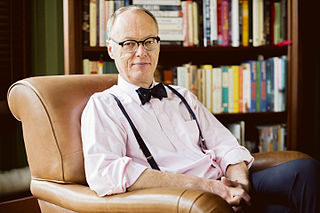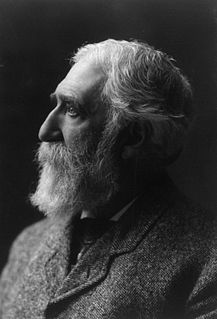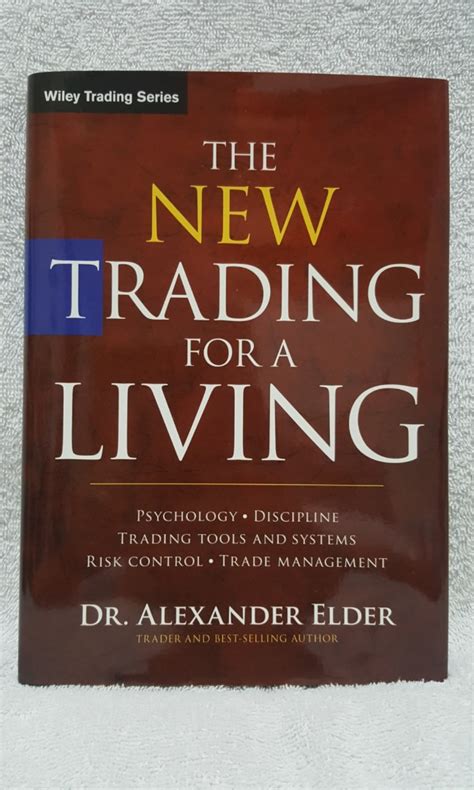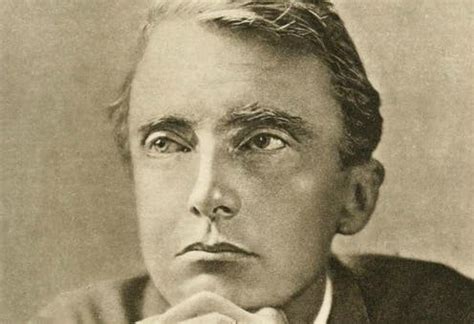Top 451 Digging Quotes & Sayings - Page 8
Explore popular Digging quotes.
Last updated on April 16, 2025.
He's at ease, his body sculpted to the music, his shoulder searching the other shoulder, his right toe knowing the left knee, the height, the depth, the form, the control, the twist of his wrist, the bend of his elbow, the tilt of his neck, notes digging into arteries, and he is in the air now, forcing the legs up beyond muscular memory, one last press of the thighs, an elongation of form, a loosening of human contour, he goes higher and is skyheld.
I see young men, my townsmen, whose misfortune it is to have inherited farms, houses, barns, cattle, and farming tools; for these are more easily acquired than got rid of. Better if they had been born in the open pasture and suckled by a wolf, that they might have seen with clearer eyes what field they were called to labor in. Who made them serfs of the soil? Why should they eat their sixty acres, when man is condemned to eat only his peck of dirt? Why should they begin digging their graves as soon as they are born?
With the disappearance of the future, the only thing that remains in your hands is now. Then you can go deep into this now - whatsoever you are doing. You can be eating or dancing or making love to a woman or singing or digging a hole in the ground - whatsoever you are doing. This is the only time you have, why not do it totally? Why not celebrate it? Celebration and being total mean the same thing. You celebrate only when you are total in something, and when you are total in something you celebrate it.
The State exists simply to promote and to protect the ordinary happiness of human beings in this life. A husband and wife chatting over a fire, a couple of friends having a game of darts in a pub, a man reading a book in his own room or digging in his own garden-that is what the State is there for. And unless they are helping to increase and prolong and protect such moments, all the laws, parliaments, armies, courts, police, economics, etc., are simply a waste of time.
Michael: 'Hey, remember when I almost didn't let you into the house that first day you came?' Claire: 'Yep' Michael: 'Well, I was dead wrong. Maybe I never said that out loud before, but I mean it, Claire. All that's happened since... we wouldn't have made it. Not me, not Shane, not Eve. Not without you.' Claire: 'It's not me. It's not! It's us, that's all. We're just better together. We... take care of each other.' Shane: 'Stop vamping up my girl, man. She needs coffee.' Michael: 'Don't we all. Vamping up your girl? Dude. That's low.' Shane: 'Digging for China. Come on.
Life is brimming with things to be discovered and known, skills to be mastered, challenges to be overcome. And when you are discouraged, dig a hole in the earth and think of the possibilities. So many things can be planted in your lifetime, skills that once mastered will bear fruit forever. . . . Pluck up some enthusiasm for the business of life, for the loamy matter that supports us all. Become a handyman and spread your skills wide, digging deeper into the earth's crust to uncover its secrets.
You didn't plan to write a story; it just happened. Well, it could be argued that the next thing you should do is find a hole to dig. Right? So you start digging a hole and then somebody brings a body along and puts it in. That's what a story must feel like to me. It's not that you say, "I want to write a story about a gravedigger." But you're walking along and "I don't know what I'm doing here in this story,' and - boop! a shovel. "Oh, interesting. Ok, what does one do with a shovel? Digs a hole. Why? I don't know yet. Dig the hole! Oh, look a body."
So long as we continued to attach more importance to our own narrow group membership than to the 'global village' we would propagate prejudice and ignorance. There was absolutely no harm in being part of a small group - indeed, with our hunter-gatherer band mentality it gave comfort, provided us with an inner circle of friends who could be utterly trusted, who were absolutely reliable. It helped give us peace of mind. The danger came only from drawing that sharp line, digging that ditch, laying that minefield, between our own group and any other group that thought differently.
What do you think would happen if we kissed right here, right now?" he asks, digging his hands into the pockets of his khaki pants, grinning right back at me. "I think it would cause a riot." "Well, you know me," he says, lowering his head towards me. "Causing a riot is what I do best." Santangelo approaches before Griggs gets any closer and pulls him away. "Are you guys insane?" he says, irritated. "It's called peaceful coexistence, Santangelo. You should try it and if it works we may sell the idea to the Israelis and Palestinians," I say, throwing his own words back at him.
By analyzing data from Greenwich Observatory in the period 1836-1953, John A. Eddy [Harvard-Smithsonian Center for Astrophysics and High Altitude Observatory in Boulder] and Aram A. Boornazian [mathematician with S. Ross and Co. in Boston] have found evidence that the sun has been contracting about 0.1% per century during that time, corresponding to a shrinkage rate of about 5 feet per hour. And digging deep into historical records, Eddy has found 400-year-old eclipse observations that are consistent with such a shrinkage.
Any fitness expert will tell you that a strong core is the start to a strong and healthy body. The same is true with our identities. It's about strengthening our core, which requires digging past all of the surface identities that crowd our nametags and remembering that at the deepest level we are God's masterpiece. The stronger our knowledge of the core of who we are, the better we'll be able to deflect the old names and false identities that try to own us.
It's funny, I don't really feel that nostalgic. I only recently started putting up some photos from some of the sessions I've done over the years and some of the Garbage sessions because my daughter, who's 10-years-old, when she was about 6 or 7 she was more curious about what I do. I have all these platinum records and stuff, they've all just been in boxes in storage for years but I started just digging through those things because I sort of want her to be aware of my past. I never really put the old recordings on and listen to them and go, "Oh that sounds great."
A lot of people think that they are really cool because they don't outline. In my writing group, they would say, "I will never outline. I let the characters take me." C'mon, man - I outline the story, but it's only like one page. It's a list of possible reversals in the story, like things where everything will just change because of this certain reveal or this certain action. Then I start really digging into the character because, to me, I don't care what the story is.
The love of dirt is among the earliest of passions, as it is the latest. Mud-pies gratify one of our first and best instincts. So long as we are dirty, we are pure. Fondness for the ground comes back to a man after he has run the round of pleasure and business, eaten dirt, and sown wild oats, drifted about the world, and taken the wind of all its moods. The love of digging in the ground (or of looking on while he pays another to dig) is as sure to come back to him, as he is sure, at last, to go under the ground, and stay there.
I stood looking down through the beech trees. When I threw a stone I could count to five before the splash. Then I jumped in a rush of gold to the head, through black and cold, red and cold, brown and warm, giving water the weight and size of myself in order to imagine it, water with my bones, water with my mouth and my understanding. When my body was in some way a wave to swim in, one continuous fin from head to tail, I steered through rapids like a canoe, digging my hands in, keeping just ahead of the river.
One of the biggest things going on in London, Amsterdam, San Francisco, and New York right now is gentrification. Every major city is dealing with gentrification, and it's always the sex workers they come for first. Cities feel they have to clean up their image and make themselves more attractive for tourism, more attractive to businesses. The Gezi Park struggle in Turkey a few years ago, for example, was a popular movement defending public space and land. What I found when I was digging into the goings on there was that the park was a place where transgender sex workers felt safe.
Most private traders on a losing streak keep trying to trade their way out of a hole. A loser thinks a successful trade is just around the corner, and that his luck is about to turn. He keeps putting on more trades and increases his size, all the while digging himself a deeper hole in the ice. The sensible thing to do would be to reduce your trading size and then stop and review your system.
I got a rejection letter from an editor at HarperCollins, who included a report from his professional reader. This report shredded my first-born novel, laughed at my phrasing, twirled my lacy pretensions around and gobbed into the seething mosh pit of my stolen clichés. As I read the report, the world became very quiet and stopped rotating. What poisoned me was the fact that the report's criticisms were all absolutely true. The sound of my landlady digging in the garden got the world moving again. I slipped the letter into the trash... knowing I'd remember every word.
Intentions are a lot like seeds. You shove them into the ground, and every once in awhile, you water them. Largely, the seed does most of the work on its own. If, on one hand, you were digging the seed up several times a day to see what progress was being made, the seed would not take purchase in the soil. On the other hand, if you completely ignored it, giving no water or nourishment to the soil, the seed might not thrive.
Once upon a time a man whose ax was missing suspected his neighbor's son. The boy walked like a thief, looked like a thief and spoke like a thief. But the man found his ax while digging in the valley, and the next time he saw his neighbor's son, the boy walked, looked and spoke like any other child.
Gundar seemed to come to a decision. "Well, as my old mam used to say, if it looks like a duck and quacks like a duck and walks like a duck, it's probably a duck." "Very wise," Halt said. "And what exactly do your mother's words of wisdom have to do with this situation?" Gundar shrugged. "It looks like a channel. It's the right place for a channel. If I were digging one, this is where I'd dig a channel. So. . ." "So it's probably the channel?" Selethen said. Gundar grinned at him. "Either that or it's a duck.
I'm kind of a creature of the alt-weekly universe - my real education into higher culture was acquired in coffee shops, reading those papers, digging into that lively mishmash of opinion for drift, a sense of what to see, what to hear, what to read, etc. - and I'd like to think that scene's still vital, although I understand there's been a fair amount of conglomerating, which would seem to undercut its radical roots, its funky local flavor. I'd encourage any writer with an eye for life and an ear for prose to give it a try. You can work out your chops just fine in newsprint.
We are often told we are materialistic. It seems to me, we are not materialistic enough. We have a disrespect for materials. We use it quickly and carelessly. If were genuinely materialistic people, we would understand where materials come from and where they go to. But, at the moment, the entire global economy seems to be built on the model of digging things up from one hole in the ground on one side of the earth, transporting them around the world, using them for a few days, and sticking them in a hole in the ground on the other side of the world.
About writing I learned that always, always, always it's necessary to haunt your settings. I'm a big researcher. All my fiction is based on tons of digging. But the vital importance of actually traveling to the settings of a novel really hit me. And it's not just the setting details, not just the visuals and other sensory data, that will pop. You'll find surprising clues that swerve your story in whole new, deeper, surprising, more organic ways.
Probably no single event highlights the strength of Campbell's argument (on peak oil) better than the rapid development of the Alberta tar sands. Bitumen, the world's ugliest and most expensive hydrocarbon, can never be a reasonable substitute for light oil due to its extreme capital, energy, and carbon intensity. Bitumen looks, smells, and behaves like asphalt; running an economy on it is akin to digging up our existing road infrastructure, melting it down, and enriching the goop with hydrogen until it becomes a sulfur-rich but marketable oil.
As Churchill said about the Great War, and he said this in about 1924, that it was the first war in which man realized that he could obliterate himself completely. If you consider the way the whole world was impacted, 18 million people worldwide died, and that is taking into account military and civilian deaths: 18 million people. And it was the whole world, if you will. You know, many of those trenches were dug by Chinese. There are photographs of Chinese looking like they just came from China, with their hats and so on, digging the trenches, right from the beginning.
To-day I think Only with scents, - scents dead leaves yield, And bracken, and wild carrot's seed, And the square mustard field; Odours that rise When the spade wounds the root of tree, Rose, currant, raspberry, or goutweed, Rhubarb or celery; The smoke's smell, too, Flowing from where a bonfire burns The dead, the waste, the dangerous, And all to sweetness turns. It is enough To smell, to crumble the dark earth, While the robin sings over again Sad songs of Autumn mirth." - A poem called DIGGING.
My wife Ann and I had been digging during the day, transplanting lilies from the front of this abandoned farmhouse back down the road to where we live. We finished. She was tired and laid in the grass. I took a picture. The house is now gone. The walnut trees have been bulldozed and burned. I saw this picture the other day for the first time in years and realized how photographing life within a hundred yards of my front porch had helped me focus on everything I cared about.
God is not merely at your fingertips but within your grasp. Live each day like a child digging through an antique treasure chest rifling for the next discovery. Open your arms and your eyes to the God who stands in plain sight and works miracles in your midst. Look for him in your workdays and weekends, in your meeting-filled Mondays and your lazy Saturdays. Search for him in the snowy sunsets and Sabbaths, seasons of Lent and sitting at your table. Pray for—and expect—wonder. For when you search for God, you will discover him.
I was lucky to wander into evolutionary theory, one of the most exciting and important of all scientific fields. I had never heard of it when I started at a rather tender age; I was simply awed by dinosaurs. I thought paleontologists spent their lives digging up bones and putting them together, never venturing beyond the momentous issue of what connects to what. Then I discovered evolutionary theory. Ever since then, the duality of natural history-richness in particularities and potential union in underlying explanation-has propelled me.
I say this in the book [Today Matters], we either spend our day repairing or preparing, and if I haven't taken good care of my today's, they accumulate. So all of a sudden today what I'm doing is I'm going back, I'm repairing bad relationships and wrong decisions, and I'm digging a hole. I'm not making any progress because I'm in a repairing mode, versus if I really make today count that prepares me for tomorrow. Tomorrow really will take care of itself if I do the right thing today.






























